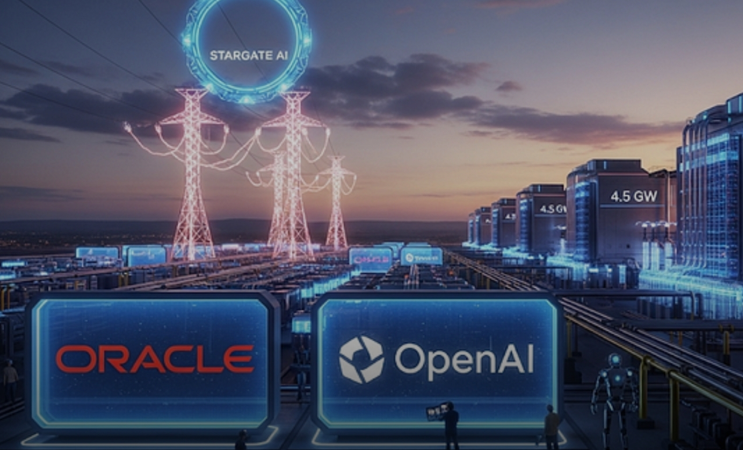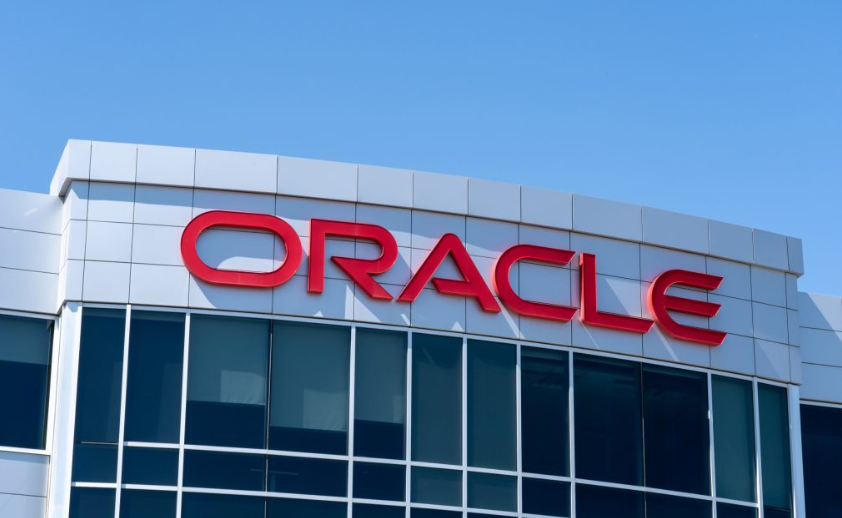This week marks a monumental leap in AI infrastructure: OpenAI and Oracle have agreed to expand the Stargate initiative by adding 4.5 gigawatts of data center capacity—enough to power nearly a million homes. With a plan to deploy over two million AI-optimized chips across multiple U.S. sites, this expansion signals a new era of enterprise-grade artificial intelligence—built for performance, speed, and scale.
- The Context of Stargate
Originally announced earlier this year, Project Stargate is a long-term collaboration between OpenAI, Oracle, and several private backers. The initiative was born from the need to support increasingly complex AI models, including multimodal large language models, agentic AI systems, and enterprise-grade inferencing frameworks.
Now with this week's expansion, the project enters its next phase: operational execution. The new sites will increase compute capacity significantly, providing the infrastructure backbone for OpenAI’s future ChatGPT models and enabling a wide spectrum of business-critical AI workloads.
- What This Expansion Enables
At its core, Stargate is about delivering industrial-scale performance for AI-native operations. The addition of over two million chips will unlock new capabilities, including:
- Faster, lower-latency AI inference, ideal for real-time personalization, natural language interfaces, and customer-facing chat applications.
- Massively parallel training capacity to support future iterations of ChatGPT and specialized industry models.
- Seamless data and model delivery across Oracle’s expanding global cloud infrastructure.
For B2B teams, this means greater access to enterprise-ready AI services, ones that can handle heavier workloads, run faster, and deliver higher-quality outputs.
- Strategic Ramifications for B2B Leaders
- Performance Becomes the New Differentiator
Enterprises deploying AI across customer service, marketing, product, and operations will no longer tolerate laggy chatbots or slow analytics. These new infrastructure layers allow for real-time inference, giving businesses the opportunity to launch AI-native customer experiences with reliability and scale.
- Cloud Vendor Power Shift
Oracle’s deepening partnership with OpenAI positions it as a serious cloud contender. Companies historically locked into AWS or Azure ecosystems may now explore Oracle Cloud Infrastructure (OCI) as a performance-first alternative, particularly for AI-intensive workloads. This reshapes conversations between CIOs, procurement teams, and AI vendors.
- GTM and Sales Enablement Evolution
With AI capabilities more readily available and stable, B2B marketing teams can build products, experiences, and campaigns around real-time intelligence. From smart demos that adapt on the fly, to AI-curated content engines and buyer behavior prediction, the infrastructure now supports far more than theoretical value—it delivers functional change.
- Risk Areas to Monitor
Energy & Sustainability Pressure
At 4.5 gigawatts, the environmental footprint of these data centers is massive. Stakeholders will be watching closely to ensure renewable energy sourcing, cooling system efficiency, and emissions transparency. Brands building AI strategies on this infrastructure must be ready to communicate sustainability clearly.
Capital Overload
Oracle’s commitment reportedly includes annual spending of $30 billion to meet AI infrastructure demand. While this signals long-term confidence, it also introduces financial risk if customer adoption doesn’t match expectations. B2B customers need to plan flexibly, avoiding over-commitment to any single vendor or architecture.
Execution Delays
Building AI infrastructure at this scale is complex. Regulatory approvals, construction timelines, and global component supply can all impact delivery. Procurement teams should verify delivery timelines and operational readiness when embedding these services into go-to-market timelines.
- What B2B Leaders Should Do Now
?? Re-evaluate Your AI Maturity Roadmap
Stargate’s scale-up will unlock capabilities that were previously too slow or too expensive to execute. If you shelved AI-powered personalization or agent-led lead nurturing due to performance gaps, it may be time to revisit those use cases.
?? Prepare for Cross-Vendor AI Strategy
Oracle's infrastructure advantage is clear, but B2B brands should avoid lock-in. A smart move is to build multi-cloud flexibility into your AI strategy, especially when experimenting with new use cases or migrating existing data workloads.
?? Upskill Teams on Performance Optimization
As infrastructure barriers fall, performance tuning becomes the new battleground. Marketing and sales teams working with AI outputs (emails, demos, segmentation) should learn to optimize prompts, monitor latency, and integrate performance metrics into their dashboards.
?? Align Sustainability Messaging
With energy use under scrutiny, tie your AI initiatives into your brand’s ESG narrative. Use performance gains to demonstrate operational efficiency, not just innovation for innovation’s sake.
Conclusion
The Stargate expansion is more than a headline. It’s a milestone for how AI will be built, deployed, and scaled in enterprise environments. With Oracle and OpenAI setting the foundation, B2B companies must respond not by watching, but by planning, building, and integrating with urgency and intent.
In this new landscape, AI isn’t something you buy, it’s something you build into your advantage. At Pineapple View Media, we see this as the moment to go beyond the prompt—and start architecting transformation.






